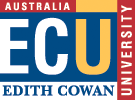The Graduate Diploma of Education (Secondary) requires students to complete 120 credit points. Normally this will comprise one year (two semesters) of full-time study or its equivalent on a part-time basis. The course includes:
- 3 core education units (2 x 12 credit points, 1 x 10 credit points)
- 2 units in an Area of Specialisation Years 8 - 12 (1 x 12 credit points, 1 x 10 credit points)
- 2 units in an Area of Specialisation Years 8 - 10 (1 x 12 credit points, 1 x 10 credit points)
- 3 Professional Practice units (2 x 6 credit points, 1 x 20 credit points) and
- 1 Education elective unit (1 x 10 credit points)
N.B. Students who wish to select the Catholic Education Years 8 - 10 Area of Specialisation as an option will need to complete 2 x 15 credit point units to achieve Accreditation to teach in a Catholic School. In this case, the completed degree will comprise 128 credit points.
Periods of Professional Practice require a full-time commitment. The Graduate Diploma of Education is a recognised qualification for secondary teaching anywhere in Australia.
ADMISSION REQUIREMENTS
A recognised degree from a University or College of Advanced Education. The degree should provide a suitable background for at least one area of specialisation reflecting secondary school curriculum areas. Specialisations must be negotiated and agreed with the Course Coordinator. Applicants need to demonstrate advanced skills and knowledge to enrol in a Years 8 - 12 area of specialisation (e.g. a major in their undergraduate degree) and intermediate skills to enrol in a Years 8 - 10 area of specialisation (e.g. a minor in their undergraduate degree).
COURSE LOCATION AND MODE OF STUDY
The one year course is available by full-time or part-time study on Mount Lawley campus. However, the following areas of specialisation are taught at the Joondalup campus:
Business Education, Home Economics Education, Mathematics Education, Science Education and Social Science Education.
COURSE STRUCTURE
Five main areas are studied.
1. Foundations of Education
These units are designed to develop skills for the prospective teacher as a decision-maker in the teaching-learning process. They focus on lesson planning, teaching skills and strategies, classroom management, the adolescent learner, and the structure, organisation and important concerns of schooling in our society.
2. Specialisation in a teaching and learning area
School curricula and teaching strategies are studied to be able to teach primarily in Years 8-12 in one of the following areas:
Art Education, Business Education, Computing Education, Dance Education, Design and Technology Education, Drama Education, English Education, Home Economics Education, Languages other than English (LOTE), Mathematics Education, Media Education, Music Education, Physical Education, Science Education and Social Science Education.
3. Specialisation in a second teaching and learning area
School curricula and teaching strategies are studied to be able to teach primarily in Years 8-10 in one of the following areas:
Art Education, Business Education, Catholic Education, Computing Education, Drama Education, Design and Technology Education, English Education, Health Education, Home Economics Education, Mathematics Education, Media Education, Physical Education, Science Education, Social Science Education and Teaching English to Speakers of other Languages (TESOL).
4. Elective Units in Education
Students choose a unit in second semester from elective streams in education. These are designed for indepth study in areas of significance in secondary education. An approved list of electives is made available by the course coordinator.
5. Teaching Practice
A minimum of ten weeks of practice is prescribed in three blocks during the year. In addition, other school-based activities are prescribed as part of the process of integrating foundation studies in education with curriculum studies areas.
|
